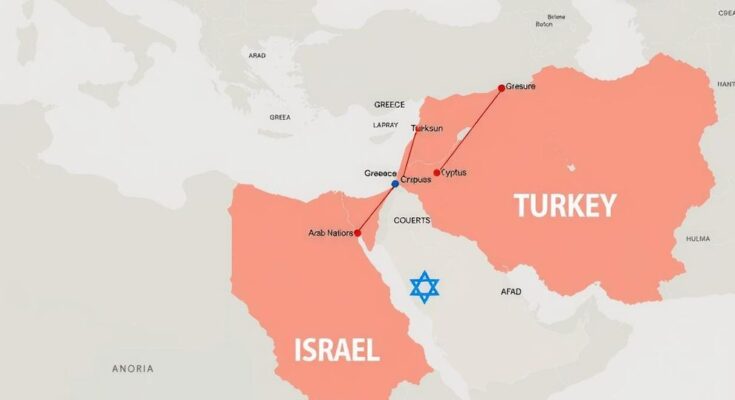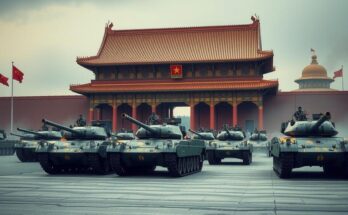Israel faces a heightened threat from Turkey, which is advancing its influence in Syria amid diminishing Iranian and Russian power. Turkey’s NATO membership and its strategic positioning amplify its role as a regional superpower. To counter this, Israel is encouraged to forge alliances with moderate Arab nations and strengthen ties with Greece and Cyprus for enhanced security.
As tensions escalate in the Middle East, Israel must swiftly address the burgeoning threat posed by Turkey. Unlike Iran, which is isolated, Turkey functions as a dynamic regional power with substantial influence in Europe and the Middle East. Reports of a potential defense pact between Turkey and the Syrian regime signal a critical concern for Israel, as such an alliance could enable Turkey to solidify military presence in Syria, potentially threatening Israel’s security far more than Iran has in recent years.
Turkey’s position as a NATO member and its cooperative relationships with the West give it leverage that Iran does not possess. Following its support for the ousting of the Assad regime, Turkey aims to increase its influence in Syria, taking advantage of the reduced Iranian and Russian presence in the region. The leadership of Foreign Minister Hakan Fidan is pivotal to this expansion, as he has been a key figure in Turkey’s geopolitical strategy, which includes enhancing military bases in Syria and increasing naval capabilities in the Mediterranean.
The Turkish military is notable for being the second largest in NATO, thereby holding a strategic command between Russia and the Middle East. Additionally, Turkey’s defense exports have surged to over $7 billion, with drone production significantly contributing to this growth, making Turkey the world’s fourth-largest producer.
Turkey also wields notable non-military power through its control of essential natural gas pipelines, which are vital for Europe’s energy security. The presence of over 3.5 million Syrian refugees within Turkey’s borders further affirms its leverage over European migration policies.
To mitigate the risk of conflict with Turkey, Israel must actively pursue strategic partnerships with moderate Sunni Arab nations, including Egypt, the United Arab Emirates, and Saudi Arabia, under U.S. auspices. Furthermore, Israel’s collaboration with Greece and Cyprus in military, energy, and diplomatic spheres is crucial. This partnership not only delineates boundaries that Turkey must respect but also enhances the strategic strength of Israel’s alliances.
In response to the evolving landscape, Prime Minister Benjamin Netanyahu has engaged security officials to reassess the threat on Israel’s northeastern border and scrutinize Turkey’s possible influence. This juncture is essential for Israel to navigate potential diplomatic solutions while safeguarding its interests against direct confrontations.
In conclusion, the urgency for Israel to address Turkey’s increasing influence is paramount. By forming strategic alliances with moderate Arab states and reinforcing partnerships with Greece and Cyprus, Israel can better safeguard its national security. Effective diplomacy is necessary to navigate the complexities of regional power dynamics, particularly with Turkey, to prevent potential military conflict.
Original Source: www.ynetnews.com




